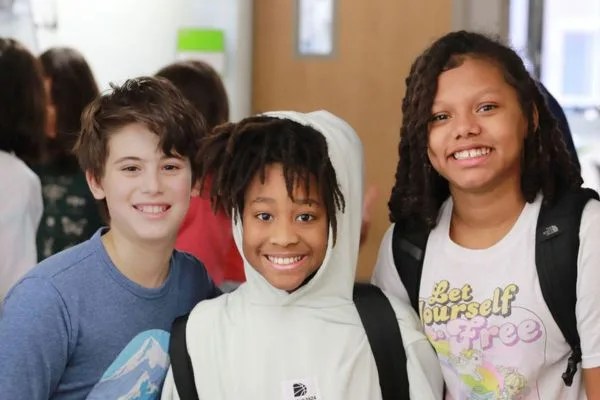Talk about making the most of second chances. Two years ago, Maddie, a yellow Labrador, was an abused dog left on the side of the road with her 10 puppies. Taken to Canine Soulmates, a foster group, 4-year-old Maddie got a second chance when she adopted her handler Jane Nolan in March 2014. Rather than just living the good life in her new home, Maddie used this second chance to help others. Maddie and Nolan work together as a therapy dog team through Pet Partners, a national leader in animal-assisted therapy.
“I saw that Maddie had a really good temperament and a very kind heart,” explains Nolan. “You can’t always find dogs that are mellow, sweet, and approachable.”
Dr. Brian Benjamin of Ohio Drive Animal Hospital agrees that a good temperament is key for a therapy animal. He points out that adequate training can bring out the most effective results.
“A therapy animal shouldn’t have any trust issues,” says Dr. Benjamin. “Plus, you can provide behavioral training, so the animal will be patient, not afraid of loud noises, and not aggressive.”
To get her “working papers,” Maddie got evaluated and trained through A New Leash on Life, one of dozens of community partners affiliated with Pet Partners.
After a physical, behavior evaluation, and six months of training in obedience, socialization, and manners, Maddie got the green light.
Therapy animals work wonders
Together, Maddie and Nolan visit area hospitals, retirement homes, and other facilities where the healing power of animal-human interaction works wonders.
“We just help give a little bit of normalcy to the day and help them feel better,” says Nolan, citing how patients’ days are filled with tests, medication, needles, therapies, and exams.
Therapy pets also ease grief, stress, and loneliness, which is why Flora Ellias, Dr. Benjamin’s receptionist, takes her 3-year-old Irish wolfhound Sheldon to visit hospice patients.
“You can easily see the connection that people have with the dogs,” says Ellias, who’s been taking Sheldon on hospice visits three times a month for the past two years. “Some patients are nonverbal until the dogs visit, and then they start talking. Rehab patients with mobility issues will pet and brush the dogs. Even Alzheimer’s patients sometimes recall a pet they had from childhood.”
Dr. Benjamin understands the therapeutic effects that animals can have on people.
“There have been studies done that show the simple process of petting a dog or hearing a cat purr can release endorphins that benefit a person’s state of mind.”
Nolan has witnessed this firsthand.
“One 5-year-old boy in oncology had lost his sight and was feeling nauseous,” she recalled from a past visit to a children’s hospital. “He was petting Maddie, trying to figure out what she looks like. I said, ‘Do you trust me and Maddie?’ He said, ‘Sure.’ And I said, ‘We’re going to play a game. You’re going to touch her and tell me what part you’re touching.’ After he figured out he was touching Maddie’s head, he said it felt like her heart because she’s so soft, and I thought that was so intuitive of him. It made him calm down and be more relaxed. It was a special moment.”
Lisa Beach is a freelance writer (and cat owner) whose work has appeared in print and online, including Parents; Brain, Child; Orlando Family; Scary Mommy; and more. See more of her writing at www.LisaB
Think your pet has what it takes?
Being a therapy animal isn’t just for dogs. A variety of animals have the potential to serve, including cats, pigs, ponies, birds, guinea pigs, and rabbits.
To get involved or donate, contact Pet Partners [875 124th Ave. NE, Suite 101 in Bellevue, WA 98005, (425) 679–5500, https://petpa
And check out these New York community partners:
ASPCA New York [424 E. 92nd St. between First and York avenues in Yorkville, (212) 876–7700 X 4426, www.aspca.org/nyc/aspca-animal-assisted-therapy-programs, aat.departm
Area served: New York City
Positive Paws Visiting Pet Program [14 Creekside Pl. off Creek Road in Pleasant Valley, NY, (845) 635-8977, www.positivepaws.org/visiting-pet-program.html, posit
Area served: Dutchess County, NY
Pet Partners of Central NY (4915 Albart Dr. between Barford Road and Peluso Drive in Syracuse, NY, www.petpartnerscny.org, info@
Area served: Central New York State

























